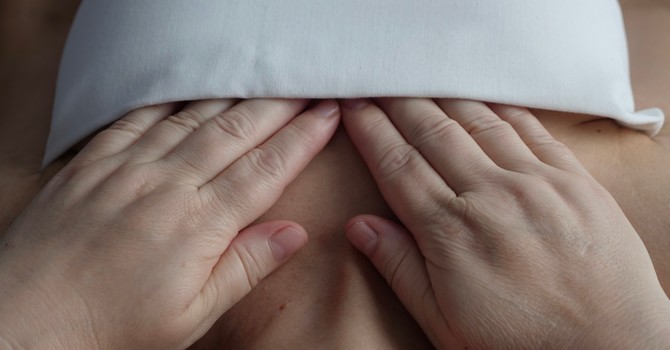Cancer isn't going to go away any time soon. According to statistics, there is an increase in cancer rates world wide, yet at the same time, the mortality rates have declined due to the overall prevention, detection and treatment of cancers. This is a good sign as it leaves us with a population that is alive, in the here and now, and that needs to be able to live well, as they deal with the ongoing challenges of side effects physically, mentally and emotionally after the cancer diagnosis. Yet, how can cancer survivors thrive, live to their optimum level of health, after dealing with this life changing news?
Yoga is an ancient practice rooted in the spirituality and philosophy of its origins in India. It includes postures and sequences of movement, breathing exercises and meditations to support well-being. It is a science based methodology that gives people the tools they need to reach full health. There are many benefits to being actively involved in one's healing journey as yoga encompasses physical, mental, emotional and spiritual health. Within the yoga community, there has been a steady rise over the past twenty years in classes tailored specifically to yoga for people who are living with cancer. As more people are living with cancer, yoga can help them to recover and maintain a strong immune system throughout their life.
Yet, you may have heard this message before: If you have cancer, you should just stay home and rest long-term, don't engage in too much exercise at all. It is an applicable recommendation if people are extremely tired or in pain, and in the throes of surgery recovery, chemotherapy and radiation, yet it is the opposite of what cancer survivors need to do ultimately to regain their health. Of course, there are times when rest is need but do you realize that it is a myth?
According to a 2018 White Paper, Yoga Interventions for Cancer Patients and Survivors, (Sulik, Kytle and Roff) the American Cancer Society recommends cancer survivors should engage in at least 150 minutes of moderate exercise per week. An example of this would be two 60 -75 minute yoga classes each week or five 30 minute ones. This enhances health and life quality while preventing cancer recurrence. In yoga classes, we are dealing with all systems of the body: cardio-vascular, lymphatic, musculo-skeletal, respiratory, nervous, endocrine and digestive so it truly is a whole body effect.
Tari Prinster, author of Yoga for Cancer, and a cancer survivor herself, has been on the leading edge of developing and teaching oncology clients for almost twenty years. In her website, she describes Oncology Yoga as an evidence informed yoga method tailored to address the specific physical and emotional needs left by the cancer and cancer treatments for cancer patients and survivors. It employs the benefits of yoga and applies to all cancer types and stages.
It is an active practice that matches breath and movement to mitigate the short and long term side effects that cancer patients and survivors face like bone loss, lymphedema, scar tissue, constipation, neuropathy, fatigue, anxiety and depression, insomnia, heart problems, range of motion and muscle strength loss, cording, capsular contracture, weight gain, menopausal symptoms, chemo brain, hernia, protective posturing and many more. It can help to build strength and flexibility, as well as strengthening the immune system by improving lymphatic function, thereby reducing stress levels in the body. And, studies suggest that yoga can also lead to longer healthier lives.
I am a registered massage therapist, who specializes in breast health, offering breast massage, post-breast cancer, reduction and reconstruction surgery care, lymphatic drainage, scar tissue release etc. I teach yoga too and just completed Tari Prinster's Yoga for Cancer Teacher Training. It was an informative experience as I have deepened my learning about a variety of topics: being mindful of the use of war language metaphors in cancer diagnosis , and using common easier yoga terminology within the medical community.
With cancer diagnosis, there are potential risks so it is necessary to be aware of each person's cancer treatment and modify accordingly if there is bone fragility, decreased flexibility, poor propping or challenges with meditation, breathing, and triggered language. Another key component is to be trauma informed- creating a safe space that acknowledges that a cancer diagnosis is a traumatic event and to support a person in what they need to be nurtured in a class setting.
In the Oncology classes, a variety of elements act together to be included in all the poses that we do together: stillness, breath awareness, flowing movements, compression, resistance, balance, and the relaxation response. We set the space to be held in self-compassion and contentment within a caring community. All these elements are for beginner to more advanced. At any level the key is for the student to adapt and go as slow as needed. With Tari's teachings, we focus on vinyasa flow in the classes moving from one pose to another with synchronized breath and being mindful during the transitions. The use of props is essential for a safe supportive class such as blocks, blankets, bolster, straps, and a chair if needed.
I feel confident as I support women through their cancer journeys in a safe, nurturing gentle way. I encourage survivors to participate in their wellness plan, making yoga a part of their weekly body/mind/spirit connection. I have been teaching a combined breast health yoga class for breast cancer survivors who have had lumpectomies, mastectomies and implants, as well as for those women who just want to promote their own breast wellness.
One of the most rewarding benefits is to see participants feeling better overall about their bodies. They are becoming more strong and flexible as well as enhancing their body image in a more positive light while improvement of their self-esteem. Also, it really helps to build community to be in a class, being interested in each others lives and helping with motivation and accountability. In the Fall I plan to teach a separate Oncology Yoga class for those with all types of cancer.
Pam Fichtner, RMT, loves being able to hold space and create healing yoga classes! She works at Broadway Health Collective, with a focus on breast health, post-breast cancer surgery and oncology care, lymphatic drainage etc. She teaches Healthy Yoga with Pam, with breast health in mind and Oncology Yoga.
Classes are taught at Queen Street Health Collective, in 6 week series or drop-in. Please email Pam if you are interested at sephira@sasktel.net.





